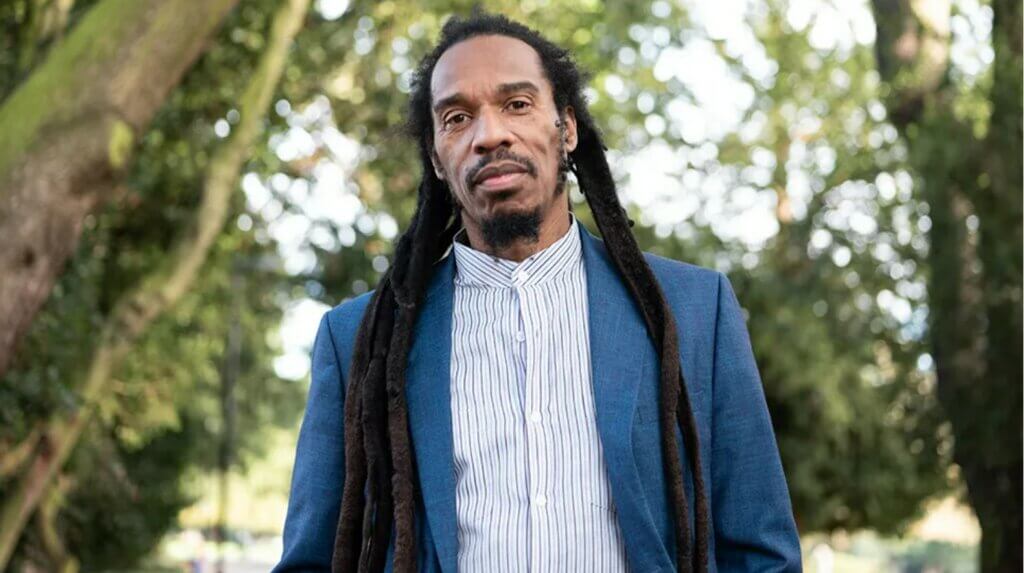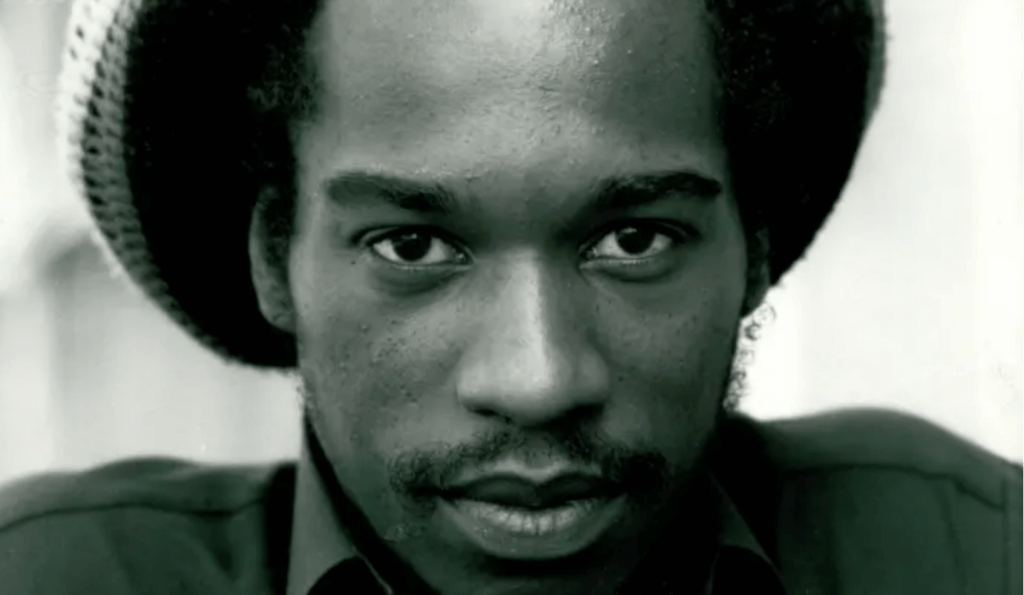
It’s with great sadness that I Am Hip Hop Magazine announces the death of poet and author Benjamin Obadiah Iqbal Zephaniah. In an era where many people of colour accept appointments from the monarchy, Zephaniah stood firm in the rejection of such things and critiqued those who accepted on grounds of inclusivity, greater platform and pro-monarchy family history;
“…these rock stars, successful women, and ex-militants write to me with the OBE after their name as if I should be impressed. I’m not. Quite the opposite — you’ve been had.”
Dubbed by some sections of the press as “Mr. No‑B.E”, Zephaniah famously rejected an O.B.E (Office of the British Empire) appointment for services to literature in 2003, he outlined his reasoning in a Guardian newspaper article in November that year, the opening paragraph I believe is worth quoting in full;
“Me? I thought, OBE me? Up yours, I thought. I get angry when I hear that word “empire”; it reminds me of slavery, it reminds of thousands of years of brutality, it reminds me of how my foremothers were raped and my forefathers brutalised. It is because of this concept of empire that my British education led me to believe that the history of black people started with slavery and that we were born slaves, and should therefore be grateful that we were given freedom by our caring white masters. It is because of this idea of empire that black people like myself don’t even know our true names or our true historical culture. I am not one of those who are obsessed with their roots, and I’m certainly not suffering from a crisis of identity; my obsession is about the future and the political rights of all people. Benjamin Zephaniah OBE — no way Mr Blair, no way Mrs Queen. I am profoundly anti-empire.” (Guardian, November 27th 2003.)
Zephaniah also used the article to highlight the case of his cousin Michael Powell who died under suspicious circumstances whilst in custody at Thornhill Road police station, Birmingham and called out the then Prime minister Tony Blair for writing to him to discuss the award but ignoring his requests to discuss his cousin’s death.
Born on 15th April 1958 in Handsworth Birmingham, Zephaniah was the son of a Jamaican mother and a Barbadian father who were a nurse and a postman respectively. He was dyslexic and he left school at the age of 13, being unable to read or write. He joined a gang and spent time in a borstal and served a prison sentence for burglary. He would go on to pioneer a style of performance poetry that was primarily composed to be spoken aloud and spoken aloud with others, stating that “Writing books was the last thing on my agenda.”

His first collection of poetry Pen Rhythm was released in 1980 after he moved to Stratford East London at the age of 22 and got involved with a worker’s coöperative. Zephaniah recalled that his very limited writing skills meant that he had to write the book phonetically; “How I thought the words would look.” and having to show it to people for help; “When I published my first book, I couldn’t read or write so I wanted to reach people like myself.”
1982 saw the release of his first EP Dub Ranting, which was produced by Dub producer Mad Professor and 1983 also saw the release of his first album Rasta, from Upright Records. Zephaniah’s official website describes the record as “World Music before World Music” describing it as “Roots reggae but with sitar, mandolin, oboe, and west African drumming.”. The album was recorded with the surviving members of Bob Marley’s band The Wailers. Anecdotes of a very young Zephaniah writing to Bob Marley and getting a reply that inspired him to be a great British writer have recently resurfaced on social media. The album includes a tribute to the incarcerated Nelson Mandela who would go on to work with Zephaniah on concerts and social projects and also described Zephaniah as his favourite poet.
Rasta along with Dread Beat an’ Blood (1978) from Linton Kwesi Johnson are considered seminal records for the Dub Poetry genre. Zephaniah would have an ambivalent relationship with the Dub Poet Label that was applied to his work.
Zephaniah made his first television appearance in 1983 in the documentary film Pen Rhythm Poet by Simon Heaven which was broadcast on Channel 4. His second collection of poetry The Dread Affair was released in 1985 and in 1989 he was nominated for the position of Oxford Professor of Poetry.
His third collection, Rasta Time in Palestine was released in 1990 and Talking Turkeys, his first children’s book was published in 1994. Talking Turkeys propelled Zephaniah to greater mainstream success and had to be reprinted 6 weeks after release in order to keep up with the demand. The Independent on Sunday described Zephaniah as “…the reigning king of children’s poetry… He has an unselfconscious relish for language and word-play that never strays into the patronising dee-dum-dee-dum-dee-dum territory of so much of children’s poetry: his are poems that bounce up from the page and demand to be read, rapped, sung and hip-hopped aloud.”. The Times described it as “poetry with attitude.”
1995 saw a musical collaboration with Sinéad O’Connor on the track Empire by Bomb the Bass. Zephaniah also appeared on the track Riddim I like from the album Community Music by Asian Dub Foundation in 2000.
In 1997, Zephaniah appeared on BBC’s Desert Island Discs. A programme where guests are asked to pick their favourite records and couple of bonus items that would take if they were castaway on a desert island. He discussed his brand of performance poetry and the weariness around other labels being applied to his work like Dub poetry. His record selection was a mix of folk and reggae tracks with a Bally Sagoo track thrown in for good measure, a reference to his Birmingham roots and the cultural and musical melting pot that gave rise to UK Bhangra. His chosen book was The Poetical Works of Shelley and chosen luxury item was “The law of the land.”, so he could break it!
His collection Too Black Too Strong was released in 2001 after a 5 year hiatus. The collection took its title from the 1963 speech, “Message to the Grass Roots” by Malcolm X; “It’s just like when you’ve got some coffee that’s too black, which means it’s too strong.” The phrase was also used in the track Bring the Noise by Public Enemy from 1987 and subsequent Hip Hop and Jungle records.
Too Black Too Strong featured poems written while Zephaniah was working as Poet in Residence with barristers who were involved in the Stephen Lawrence case and the Bloody Sunday Inquiry.
Of the collection, Zephaniah said,
‘These poems are about how I feel now…The more I travel, the more I love Britain, and it is because I love the place that I fight for my rights here…It is probably one of the only places that could take an angry, illiterate, uneducated, ex-hustler, rebellious Rastafarian and give him the opportunity to represent his country…I live in two places, Britain and the world, and it is my duty to explore and express the state of justice in both of them…I want the “project” to work. The day will come when we move from the margins and come to the centre; I just want it to be today.’
We are Britain from 2022 dealt with similar issues and his critically acclaimed autobiography The Life and Rhymes of Benjamin Zephaniah was released in 2018.
Zephaniah was an Anarchist and an activist with the Palestine Solidarity Campaign he also endorsed Jeremy Corbyn in the 2019 general election. An acting role in the television series Peaky Blinders from 2013 to 2022 brought him to a newer generation. He was also a vegan since the age of 13 and took up patronages at various vegan societies and was a regular fixture at various vegan fairs and festivals.
Rest in Power Benjamin Obadiah Iqbal Zephaniah, in rejecting your OBE you became not only “The Bard of Stratford.” but also “The People’s Laureate”.
DJ ISURU
Latest posts by DJ ISURU (see all)
- REMEMBERING DJ AND ACTIVIST DAVE WATTS — October 31, 2024
- AVA DUVERNAY’S ‘ORIGIN’ IS ULTIMATELY A STORY ABOUT LOVE | INTERVIEW WITH DR SURAJ YENGDE — March 12, 2024
- THE LIFE OF BENJAMIN ZEPHANIAH… THE POET, ACTIVIST AND AUTHOR — December 8, 2023
